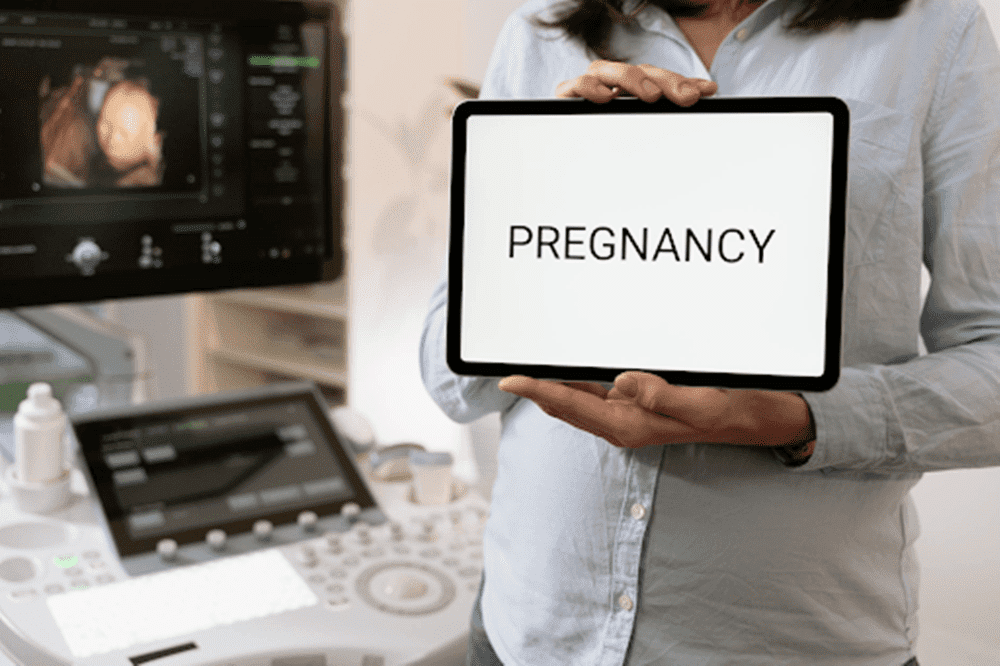
Vaccinations in pregnancy can be a pretty confusing topic.
If you are an expecting mother, you probably have several questions such as:
What vaccinations do you get while pregnant?
How safe are pregnancy vaccinations?
What are the contraindicated vaccines in pregnancy?
In this article, we give you a detailed overview.
So please stay tuned!
Vaccinations in pregnancy
There are two types of pregnancy vaccinations:
- The inactivated/killed vaccine: contains dead viruses, so it is safe during pregnancy.
- The live attenuated vaccine: contains live viruses and is harmful to an unborn baby.
What vaccine can you get while pregnant?
If you are pregnant or planning to have a baby, you should be aware of the pregnancy immunization schedule during pregnancy.
Here are some safe vaccines during pregnancy:
Influenza vaccine (Inactivated/Killed)
You can get a flu shot if you’re pregnant during the flu season since it protects the mother and the fetus from influenza complications.
However, do not use the flu vaccine in the form of a nasal spray because it contains live viruses.
Tetanus, diphtheria, and pertussis vaccine (Tdap vaccine)
First, it is essential to note how dangerous the pertussis virus is for babies less than two months old (before they receive the scheduled vaccinations).
Doctors find it difficult to diagnose because most affected babies do not have a cough, but they stop breathing.
Therefore, the pertussis vaccine is an essential pregnancy vaccination to protect the mother and fetus after birth.
The mother’s immune system makes the antibodies that are passed on to the fetus.
When to get tdap shot during pregnancy?
It is one of the most important vaccinations in pregnancy.
A pregnant woman can take it at any time, but it is preferable to take it between week 27 to week 36 in each pregnancy.
It is also recommended to take it immediately after birth; If not taken during pregnancy.
Hepatitis B Virus Vaccine
If the pregnant woman is at risk of hepatitis B virus infection, the doctor may recommend that she get the vaccine while she is pregnant to protect herself and the fetus before and after birth.
Therefore, pregnant women need to take three doses to gain viral immunity.
The pregnant woman receives the first dose, then the second dose a month later, and finally the third dose six months later.
Coronavirus vaccine
The Coronavirus poses a great threat to the life of both the mother and the fetus.
So doctors recommend giving the vaccine to pregnant women.
The vaccine helps the body create antibodies to the virus which are transmitted to the fetus.
It is recommended to take two doses before pregnancy.
However, if you only took one before getting pregnant you can still take the second during pregnancy but if you have some concerns, consult your doctor.
The vaccine does not cause infection with the Coronavirus; because it does not contain a live virus.
Vaccines for traveling abroad
If you plan to travel abroad while pregnant, consult your doctor at least 4 to 6 weeks in advance; to find out what vaccinations you need.
Contraindicated vaccines in pregnancy

Some vaccinations may cause miscarriage, premature birth, and fetal abnormalities.
Therefore, a pregnant woman or a woman planning to conceive should consult the doctor about the following vaccinations:
Hepatitis A vaccine
The safety of this vaccine during pregnancy has not yet been established, but you should consult your doctor if you are at risk of contracting the virus.
Mumps, Measles, and Rubella (MMR) Vaccine
MMR is a live vaccine that can harm an unborn baby.
This vaccine prevents measles, mumps, and rubella infection, but there are two possibilities:
- If you received this vaccine before pregnancy, you should wait at least a month before planning to become pregnant.
- If you are pregnant and it turns out that your body does not have rubella antibodies, you will receive the vaccine after you give birth.
Chickenpox (varicella) vaccine
Chickenpox (varicella) is an infectious disease.
It is transmitted through direct contact with the rash or inhalation of respiratory droplets.
So, if you are pregnant or planning to conceive, exercise extreme caution when interacting with someone who has chickenpox.
Ideally, take the vaccine one month before conception.
Pneumococcal vaccine
It is one of the contraindicated vaccinations in pregnancy due to a lack of pregnancy safety studies.
However, those who suffer from chronic diseases or are at risk of contracting pneumococcal infections should consult a specialist.
Oral polio vaccine (OPV) and non-live polio vaccine (IPV)
We mentioned earlier that most non-live vaccines are safe for pregnancy.
Nonetheless, both live and non-live polio vaccines are unsafe during pregnancy.
Human papillomavirus vaccines (HPV)
It is forbidden to take it during pregnancy.
Expected side effects after pregnancy vaccinations
These symptoms may appear three weeks after receiving the vaccine.
If these symptoms become severe, you should consult your doctor.
- Pain at the injection site.
- Fever.
- Redness and swelling at the injection site may last up to two days.
- Rash.
- Swelling in the neck and cheeks.
- Joint pain and stiffness 1-2 weeks after receiving the vaccine.
Second pregnancy vaccinations
Doctors recommend flu, tetanus, diphtheria, and whooping cough vaccines each pregnancy, to protect the mother and fetus.
Third trimester pregnancy vaccination
Doctors recommend getting tetanus, diphtheria, and whooping cough vaccines between week 27 (the last week of the seventh month) and week 36 of pregnancy.
Finally, you have to be careful about vaccinations in pregnancy for your baby’s and your own safety.
Furthermore, if you are planning to become pregnant, you should consult your doctor about pre pregnancy vaccinations.
Also, if you suffer from some diseases that requires taking a specific vaccine, do not take it before consulting your doctor to weigh the risk against the benefit.